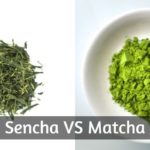Are you worried about the tannins in your tea ? People have mixed feelings about tannins, and as such there's much confusion, especially when you realize your favorite tea has plenty of them.
But are tannins really bad for you ?
Are they even any good ?
Let's take a look.
Table of Contents
Are tannins in tea good or bad ?
Tannins are neither good or bad for the human body. Taken in moderation, they can help the body stay in good health, and may prevent some diseases.
This is because tannins are a sort of antioxidant, being the oxidized cathecins normally found in tea.
Too many tannins can also disrupt a person's health, anemia being one of the most cited side effects.
As with everything, tannins should be taken in moderation. No more than 2 daily cups of tea that are very tannic (like black tea), and you'll be alright.
But to understand why tannins are both helpful and unhelpful, we need to look at what tannins are.
What are tannins in tea ?
Tannins are naturally found in several plant-based foods and drinks.
Tea is one of these plants, though at fist it's not really tannins it contains.
The green, raw tea plant contains cathecins. You'll find many of these compounds in green and white tea, which are very lightly processed teas.
Their antioxidants are mostly intact, since they haven't been roasted (or not very much).
With black and oolong tea however, the roasting process takes longer and at a higher temperature.
This means that the cathecins in the tea leaves have time to become tannins, and as such change their properties a bit.
They become a bit less bitter and astringent than before, which is something you'll notice if you ever compare a cup of pure black tea with one of pure green tea.
Some astringency and bitterness still remains, and it's what you might feel on your tongue when drinking a cup of black tea.
Tannins also impart color into the tea, which gives black and oolong teas their darker color.
Of course, color is not the only factor to judge the tannin level of a tea, as other things can color the tea in some cases.
Another contribution of tannins if that they give your cup of tea 'body'. You don't feel like you're drinking a very watery or thin cup of tea, like you would with white tea.
Tannins are a natural reaction of cathecins to oxidation, so finding them in your tea is not abnormal.
About tannic acid, the tannins contained in black tea (or tea in general) are not tannic acid.
Now let's look a bit at how tannins can help the human body, if they can.
(If you like this article so far, you can pin it to your Pinterest board by clicking the image below. The article continues after the image.)
Health benefits of tannins
Since tannins are another form of antioxidants, they may also help in preventing some diseases.
Namely, their health benefits are very similar to the ones cathecins produce.
Like decreasing the risk of some cancers, by acting upon the free radicals in the body.
What are free radicals ?
In (very) short, they're molecules missing an electron. They steal from the body's cells, in order to balance themselves.
This imbalances the cells in your body, making them mutate, grow poorly, not grow, or grow too fast. Which is pretty much the basis for many cancer types.
And of course, this leads to a whole host of health problems.
Free radicals form in time, as the body breaks down and old age sets in.
Or, by poor lifestyle choices. This implies low nutritional food, little to no physical activity, lethargy, some prolonged medications/treatments that affect the body in some harsh ways.
So the tannins in tea, especially black tea, can possibly help you compensate for some of these problems.
Another health benefit of tannins is the fact that they're anti-bacterial and may help in keeping your body more more resistant to infections, or ousting bacteria that has already taken over.
Not all health benefits from green tea (cathecins) transfer over to black tea's tannins, though the general picture is the same.
Such as helping with inflammation, digestion, and it has anti-mutagenic properties. And several others as well.
Taken in small amount, tannins may help a person's health and lower their chances of several diseases.
Research in this direction however is not very well explored, and many studies still need to be carried out so we can really figure out how tannins help the body, in detail.
Side effects of tannins
Of course, there are possible side effects to tannins in tea, meaning that if you drink too much tannic tea, you might experience some side effects.
One of these side effects, the most noted and reported, is anemia.
The way tannins work, though they're derived from antioxidants, is that they halt the absorption of iron in the body.
This means that if you regularly drink 4-5 cups of tannic tea, like black tea, you might develop some iron deficiency after a while.
One way to get around this may be to drink your black tea well before, or well after a meal from which the body would get its nutrients.
Another possible side effect is jaw pain, since the bitterness and astringency in tannins can affect your salivary glands.
Again, this is only in cases of high tannin exposure.
Which teas have tannins ?
All teas have the possibility of containing tannins.
The thing is that there's no real way to measure out how much there is in one tea, than there is in another.
This is because the way the tea was grown, where it was grown, how much and how hot the leaves were processed, and how long you steep your tea all affect exactly how much tannins end up in your cup of tea.
As a generalization, the darker teas contain more tannins. Or, at least they have the potential to release more tannins in your cup of tea, depending on how much you let it steep.
For example Assam black is one of the most famous tannic teas, as are many breakfast teas.
Conversely, white and green teas would be lower in tannins, as they were processed very little.
You'll notice your tea is high in tannins if it's a darker color, the leaves were very processed or fired on high heat, and of course if you let the tea steep for long.
Final thoughts
Tannins in eta have been up for debate ever since we started studying tea.
I think there is no real threat from just one cup of black tea per day, so don't worry about it.
Even if black tea isn't your favorite tea, like maybe you're into Pu'erh, a little bit of tannins are present there as well.
As long as you keep as healthy lifestyle and don't go overboard with the tea, you'll be fine.
If you want to know more about coffee or tea, feel free to check the related articles below. Who knows what else you might find ?






